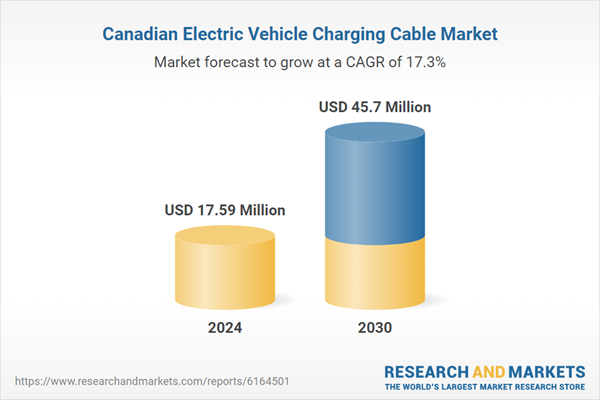Speak directly to the analyst to clarify any post sales queries you may have.
10% Free customizationThis report comes with 10% free customization, enabling you to add data that meets your specific business needs.
As EV adoption continues to accelerate across urban and suburban regions, the demand for efficient and durable charging cables is intensifying. Government support in the form of incentives, rebates, and infrastructure funding is encouraging the expansion of both public and private charging networks. This growth is fueling the need for high-quality charging accessories, including cables capable of handling high voltages and faster charging speeds. Consumers and fleet operators alike are investing in home and workplace charging setups, further boosting cable demand.
Technological innovation is shaping key trends in the market. Manufacturers are focusing on producing lightweight, tangle-free, and temperature-resistant cables to enhance user convenience and safety. Smart charging cables embedded with features such as load balancing, wireless communication, and app-based control are gaining popularity. The shift toward high-power charging (HPC) is also influencing cable design, with a growing demand for liquid-cooled and heat-resistant materials to support ultra-fast charging without overheating. Sustainability is emerging as a design consideration, with manufacturers experimenting with recyclable materials and longer-lasting cable lifespans to align with environmental goals.
Despite the optimistic outlook, the market faces challenges such as standardization issues, compatibility concerns, and high production costs. Variations in EV connector types and voltage requirements can complicate installation and increase the burden on infrastructure providers. The harsh Canadian climate, especially in colder regions, necessitates the development of cables that can withstand extreme weather conditions without compromising performance. High manufacturing and R&D expenses can limit the affordability of advanced cables for price-sensitive consumers. However, these challenges are also opening up opportunities for local production partnerships, product differentiation, and innovation in thermal and material engineering - driving further evolution of the Canada electric vehicle charging cable market.
Market Drivers
Rising Electric Vehicle Sales
The steady increase in electric vehicle adoption is directly boosting demand for EV charging cables. With more consumers and businesses transitioning to cleaner mobility options, the need for home, workplace, and commercial charging solutions is expanding. Charging cables, being essential accessories for all types of EVs, are witnessing a surge in demand aligned with this vehicle growth trend.As more vehicle models are introduced across various price segments, cable manufacturers are scaling production to meet the diversity in technical requirements. This expansion is pushing aftermarket demand for replacement cables and spurring innovation in cable designs tailored for different EV models. The growing number of fleet operators transitioning to electric delivery and service vehicles is also contributing to consistent cable demand. As adoption continues across urban and rural areas, cable deployment will become critical to daily EV functionality.
Key Market Challenges
Compatibility and Standardization Issues
The variety of EV models and charging connector types creates compatibility challenges. Charging cables must align with different plugs and voltage levels, increasing the complexity for manufacturers and consumers. Lack of universal standards can lead to confusion and reduced cable interoperability. Consumers often need to buy multiple cables for different vehicles or locations. Charging station operators must invest in multi-standard solutions, raising their infrastructure costs. Industry groups are working to streamline connector types, but complete unification remains a long-term goal. This challenge continues to be a barrier for cost-effective scaling and user convenience.Key Market Trends
Growth of Smart Charging Cables
Smart cables with features like power load management, mobile app integration, and remote diagnostics are gaining traction. These technologies enable better control, energy monitoring, and grid optimization, offering added value to both residential and commercial users. Real-time alerts for power fluctuations or thermal issues enhance safety. Integration with smart home systems allows seamless automation of charging schedules. Some models offer RFID authentication for secure fleet usage. Smart cables are also evolving to support bidirectional charging, enabling vehicle-to-grid (V2G) capabilities.Key Market Players
- Leoni AG
- Aptiv
- TE Connectivity
- BESEN International Group
- Dyden Corporation
- HUBER+SUHNER
- Brugg eConnect
- Mennekes Elektrotechnik
- Phoenix Contact
- Sinbon Electronics
Report Scope:
In this report, the Canada Electric Vehicle Charging Cable Market has been segmented into the following categories, in addition to the industry trends which have also been detailed below:Canada Electric Vehicle Charging Cable Market, By Cable Type:
- Normal Charging Cable
- High-Power Charging Cable (HPC)
- Liquid-Cooled High-Power Charging Cable
Canada Electric Vehicle Charging Cable Market, By Application:
- Private
- Public
Canada Electric Vehicle Charging Cable Market, By Connector Type:
- Type1
- Type2
- CCS 1
- CCS 2
- CHADEMO
- GB/T
- NACS/Tesla
Canada Electric Vehicle Charging Cable Market, By Power Supply:
- AC
- DC
Canada Electric Vehicle Charging Cable Market, By Region:
- Alberta
- Quebec
- Ontario
- British Columbia
- Saskatchewan & Manitoba
- Rest of Canada
Competitive Landscape
Company Profiles: Detailed analysis of the major companies present in the Canada Electric Vehicle Charging Cable Market.Available Customizations:
With the given market data, the publisher offers customizations according to the company’s specific needs. The following customization options are available for the report.Company Information
- Detailed analysis and profiling of additional market players (up to five).
Table of Contents
Companies Mentioned
- Leoni AG
- Aptiv
- TE Connectivity
- BESEN International Group
- Dyden Corporation
- HUBER+SUHNER
- Brugg eConnect
- Mennekes Elektrotechnik
- Phoenix Contact
- Sinbon Electronics
Table Information
| Report Attribute | Details |
|---|---|
| No. of Pages | 85 |
| Published | August 2025 |
| Forecast Period | 2024 - 2030 |
| Estimated Market Value ( USD | $ 17.59 Million |
| Forecasted Market Value ( USD | $ 45.7 Million |
| Compound Annual Growth Rate | 17.2% |
| Regions Covered | Canada |
| No. of Companies Mentioned | 10 |









